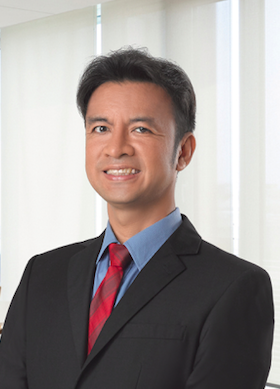Passing the “best bar ever” for the new 8,241 lawyers is not enough: they have to be reminded of the highest standards of morality expected from members of the legal profession.
Discussion on disbarment is an interesting part of the legal ethics sessions of the Mandatory Continuing Legal Education (MCLE).
Good moral character is a condition which precedes admission to the Bar (Sec. 2, Rule 138, Rules of Court) and is not dispensed with upon admission.
It is a continuing qualification which all lawyers must possess (People v. Tuanda, 181 SCRA 682), otherwise, a lawyer may either be suspended or disbarred.
The practice of law is a privilege accorded only to those who measure up to the exacting standards of mental and moral fitness based on the Code of Professional Responsibility:
Rule 1.01 – A lawyer shall not engage in unlawful, dishonest, immoral or deceitful conduct.
Rule 7.03 – A lawyer shall not engage in conduct that adversely reflects on his fitness to practice law, nor should he, whether in public or private life, behave in a scandalous manner to the discredit of the legal profession.
The Supreme Court stressed in several cases that if the practice of law is to remain an honorable profession and attain its basic ideals, whoever is enrolled in its ranks should not only master its tenets and principles but should also, in their lives, accord continuing fidelity to them.
Disciplinary proceedings against lawyers serve to curb misbehavior and promote excellent public service in the Judiciary.
In Advincula v. Advincula (A.C. No. 9226, June 14, 2016), lawyers are reminded to always conduct themselves in a manner as to avoid scandalizing the public by creating the belief that they are flouting the moral standards of the legal profession.
“It is expected that every lawyer, being an officer of the Court, must not only be in fact of good moral character, but must also be in deed, any lawyer guilty of gross misconduct should be suspended or disbarred even if the misconduct relates to his or her personal life for as long as the misconduct evinces his or her lack of moral character, honesty, probity or good demeanor seen to be of good moral character and leading lives in accordance with the highest moral standards of the community,” the Court said.
In Narag v. Narag (A.C. No. 3405, June 29, 1998), “immoral conduct” has been described as conduct that is so willful, flagrant, or shameless as to show indifference to the opinion of good and respectable members of the community.
Such conduct must not only be immoral, but grossly immoral, that is, it must be so corrupt as to virtually constitute a criminal act or so unprincipled as to be reprehensible to a high degree or committed under such scandalous or revolting circumstances as to shock the common sense of decency.
In Ceniza v. Ceniza ( A.C. No. 8335, April 10, 2019) and Bustamante-Alejandro v. Alejandro, (A.C. No. 4256, February 13, 2004 ), the lawyers were disbarred for having abandoned their respective spouses and having maintained illicit affairs with other partners.
In Guevarra v. Eala ( 529 SCRA 1.), a lawyer was disbarred for engaging in an extra marital affair with a married woman.
In Perez v. Catindig, ( A.C. No. 5816, March 10, 2015), the lawyer’s subsequent marriage during the subsistence of his previous one warranted his disbarment because he displayed his deliberate disregard of the sanctity of marriage and the marital vows protected by the 1987 Constitution.
In Panagsagan vs. Panagsagan (A.C. No. 7733, October 1, 2019), the conversion of the lawyer to Islam was a feeble attempt to shield himself from the complaint, to conceal his gross immoral conduct of infidelity and to legitimize his illicit affair.
My former UP LAW professor Associate Justice Marvic Leonen said in the case of Dagala v. Quesada, Jr. (814 Phil. 103) that the negligence or utter lack of callousness of spouses who commit indiscretions as shown by their inability to ask for forgiveness, their concealment of the act from their legitimate relationships, or their lack of support for the children born out of wedlock should be aggravating and considered for the penalty to be imposed.
Proceedings for disbarment may be taken by the Supreme Court motu proprio or upon filing of a verified complaint of any person before the Supreme Court or the Integrated Bar of the Philippines.
The complaint shall state clearly and concisely the facts complained of and shall be supported by affidavits of persons having personal knowledge of the facts alleged and/or by such documents as may substantiate said facts.
When the integrity or morality is challenged, it is not enough that the lawyer denies the charge, for he must meet the issue and overcome the evidence presented on the charge.
The lawyer must present proof that he still maintains the degree of integrity and morality expected of him at all times.
( Peyups is the moniker of University of the Philippines. Atty. Dennis R. Gorecho heads the seafarers’ division of the Sapalo Velez Bundang Bulilan law offices. For comments, e-mail info@sapalovelez.com, or call 0917-5025808 or 0908-8665786.)
/dbs


